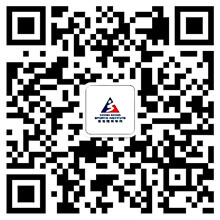Sport Psychology Education No. 2 - Practical Tips for Dealing Effectively with the Media
"Oh no! It's those reporters again. I wish they would leave me alone".
Have you ever said this to yourself before a competition? Well, your are not alone. Many athletes get nervous when it comes to answering questions from the media. They worry about saying the wrong thing, about appearing inarticulate, about saying too much! The good news is that dealing effectively with the media is easy. It requires an approach, with which you, as athletes, are already familiar - planning and practicing of skills.
What do the media want?
The media are the eyes and ears of the public. They want to be informed so that they can report what happened, to the public. The more interesting their story, the more audience they will have and the more you and your sport get exposure. So this is what the media want - An Interesting Story, not just a series of facts.
You, not the media are the experts in your sport. They know the result (the fact) but they need you to tell them the outstanding skills and techniques that led to that result (the interesting story). When something newsworthy happens, reporters always want to answer the following five basic questions:1
????The Five Basic Questions????
-
Who (was involved)
-
What (is it about)
-
Where and When (did it occur)
-
Why (did it happen)
-
How (did it happen)
Guidelines for effectively dealing with the Media
According to some local media experts, Hong Kong media are 100% behind Hong Kong athletes. By following the guidelines below, you can ensure that you not only protect your performance in the high pressure environment of international competition, but you can also successfully act as an ambassador for your sport, your association, the HKSI, and Hong Kong.
Always be prepared
(i) Before an important competition
-
Be ready to answer questions
-
In preparation for the event
-
Before a race or game
-
After a race or game
-
Between races or games
-
After the whole competition
But, if you need to focus on your performance, simply tell the reporter this, and advise when a better time for an interview would be. Do not just walk away.
-
-
Ask other more experienced athletes, your coach, or any journalist with whom your are familiar, what questions you might expect.
-
Be ready to answer the Five Basic Questions.
(ii) For a planed personal interview
-
Ask the interviewer what questions he/she is likely to want to ask.
-
Find out how long it will take, whether there will be a photoshoot etc (Magazine and TV interviews normally take longer).
-
Tell the interviewer beforehand what questions you are not willing to answer.
Practice your answers
-
Practice your answers by role-playing with your teammates/coach and get feedback on how your answers come across.
-
Do not give terse "Yes" or "No" answers.
-
Avoid long-winding responses that drag on. Use 30-50 seconds as a guideline.
Remember your sponsors
-
Never face a camera without wearing your sponsor's logo. Make this part of your professional approach to competition preparation.
Answering difficult questions
"How are your going to do today?"
"Are your going to win?"
-
Answer this type of question in a way that
(a) strengthens your focus on peak performance.
(b) avoids appearing "falsely humble"
(c) avoids appearing as if you have no self-confidence. e.g.2
"I've trained well, I'm in the best condition I've ever been in, I'm certainly going to do my best".
"My goal is to be in the top 3 and I'll do everything I can reach that goal".
"What happened? Why did you lose? This must be a big disappointment for you"
-
Be honest about your feelings
-
Be constructive in your assessment, e.g.2
"Of course I am very disappointed. I will have to do a careful evaluation, to know what really happened. I will look for the constructive lessons in the experience. We have to look forward not back".
"Politically sensitive" questions
-
You do not have to answer any question that makes you feel uncomfortable. A polite refusal can be:
"It is not appropriate for me to comment on this issue. Perhaps my coach/association/etc. can help you answer this".
Off the Record!
Remember to tell a reporter if you want a conversation to be "off the record" (i.e. not for publication).
For more information, please contact:
Sports Information Centre
Telephone: (852) 2681 6130
Athlete Affairs Department
Telephone: (852) 2681 6179
Sport Psychology Unit
Telephone: (852) 2681 6277
 ID: hksportsinstitute
ID: hksportsinstitute

